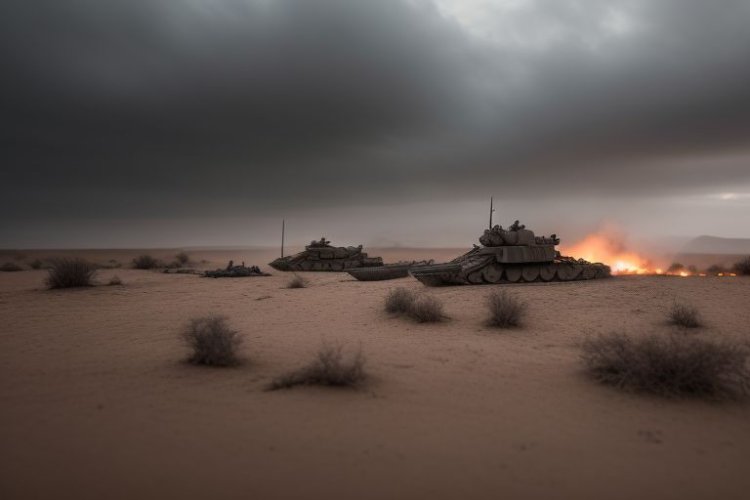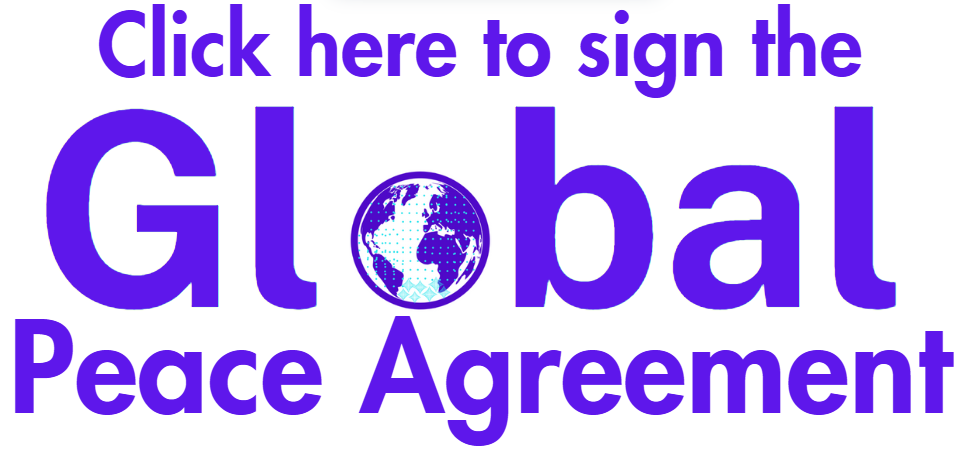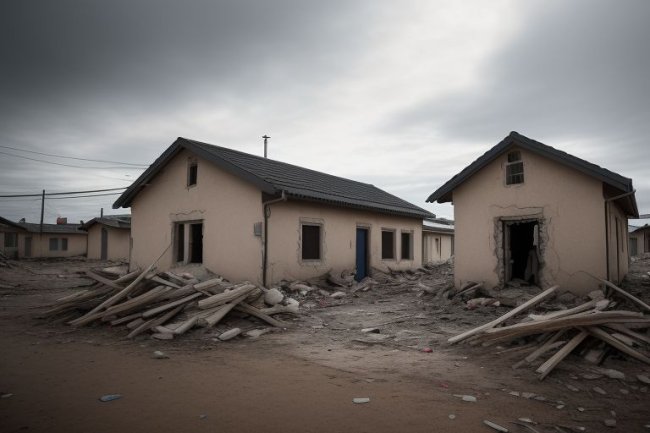AVOIDING WAR: Mediation And Third-Party Intervention
Mediation offers a non-coercive and voluntary process that empowers the disputing parties to take ownership of the resolution and find common ground. Third-party intervention, on the other hand, encompasses a broader range of activities that extend beyond mediation. It includes diplomatic efforts, arbitration, fact-finding missions, peacekeeping operations, and humanitarian interventions.


In a world often marred by conflicts and tensions, the strategic use of mediation and third-party intervention has emerged as a vital tool for preventing and avoiding the outbreak of war. These approaches offer a means to peacefully resolve disputes, facilitate dialogue, and foster reconciliation among conflicting parties. In mediation, an unbiased third party intervenes to facilitate negotiations and assists disputing parties in reaching a mutually acceptable agreement. The mediator, often selected for their impartiality and expertise in conflict resolution, assists in clarifying issues, managing communication, and exploring potential solutions.
Mediation offers a non-coercive and voluntary process that empowers the disputing parties to take ownership of the resolution and find common ground. Third-party intervention, on the other hand, encompasses a broader range of activities that extend beyond mediation. It includes diplomatic efforts, arbitration, fact-finding missions, peacekeeping operations, and humanitarian interventions. Third parties can be states, international organizations, non-governmental organizations, or individuals who engage in various roles to facilitate conflict resolution and prevent the escalation of violence.
Mediation and third-party intervention offer numerous benefits in preventing and avoiding war. Firstly, they provide a structured and neutral platform for parties to dialogue, de-escalate tensions, and explore peaceful resolutions. Mediators and third parties help bridge divides and promote reconciliation by facilitating communication and fostering understanding. Secondly, these approaches enable disputing parties to maintain control over the outcome rather than resort to violent means. Mediation allows parties to actively participate in decision-making and craft solutions that address their underlying interests and concerns. This sense of ownership and empowerment increases the likelihood of sustainable and lasting agreements. Thirdly, mediation and third-party intervention provide opportunities for the inclusion of diverse perspectives and marginalized voices. By ensuring the representation of all stakeholders, including women, youth, and minority groups, these processes foster inclusivity and promote more comprehensive and representative outcomes. Key principles guide successful mediation and employ various techniques to facilitate dialogue and resolution. Key principles include impartiality, neutrality, confidentiality, and the voluntary participation of all parties. Mediators create a safe and conducive environment for dialogue, where parties can freely express their concerns and interests. Techniques used in mediation include active listening, reframing, brainstorming, and exploring creative solutions. Mediators employ these techniques to clarify issues, manage emotions, and facilitate the exploration of mutually beneficial options. By encouraging constructive communication, mediators help parties move beyond entrenched positions and find common ground.
Despite its merits, mediation and third-party intervention face challenges and limitations. One of the primary challenges is the voluntary participation of conflicting parties. In some cases, parties may be reluctant to engage in the process, preferring to pursue their goals through force or other means. Overcoming this challenge requires building trust, ensuring inclusivity, and addressing power imbalances. Another challenge is the complexity and intractability of some conflicts. Mediators and third parties may encounter deeply rooted grievances, historical animosities, or competing interests that hinder progress. Given the intricacies involved, employing innovative and context-specific approaches that target the root causes of conflict and foster reconciliation is essential. Additionally, the effectiveness of mediation and third-party intervention is contingent upon the commitment and cooperation of all parties involved. Lack of genuine commitment, insincerity, or a failure to implement agreed-upon solutions can undermine the process and impede the achievement of sustainable peace.
Mediation and third-party intervention play a crucial role in preventing and avoiding war. These strategic approaches provide a platform for dialogue, foster understanding, and empower disputing parties to find peaceful resolutions. By upholding impartiality, confidentiality, and voluntary participation, mediators and third parties can help build trust, bridge divides, and promote reconciliation. However, challenges such as voluntary participation, the complexity of conflicts, and ensuring commitment require careful consideration and adaptive approaches. By harnessing the power of mediation and third-party intervention, we can work towards a world where conflicts are peacefully resolved and the devastating consequences of war are avoided.
THE INVOLVEMENT OF INTERNATIONAL ORGANIZATIONS IN CONFLICT RESOLUTION
International organizations play a crucial role in addressing conflicts and fostering peace worldwide. With their global reach and impartiality, these organizations provide platforms for dialogue, coordinate peacekeeping efforts, and promote cooperation among nations. International organizations serve as neutral and impartial actors, offering a platform for multilateral dialogue and cooperation. International organizations, like the United Nations, offer a global platform where member states can come together to tackle conflicts, exchange viewpoints, and pursue peaceful resolutions. Regional organizations, like the African Union (AU) and the European Union (EU), focus on resolving problems in their regions by utilizing their knowledge and closeness to encourage communication and promote reconciliation. International organizations promote conflict resolution through various mechanisms and tools. One key approach is preventive diplomacy, where organizations engage in early intervention to address emerging conflicts before they escalate into violence. This involves diplomatic efforts, mediation, and the deployment of peacekeeping missions to prevent further hostilities and create conditions for peaceful resolutions. International organizations’ efforts to resolve conflicts sometimes include peacekeeping operations, which are carried out with UN approval.
These operations involve the deployment of multinational forces to conflict-affected areas to maintain peace, protect civilians, and facilitate political transitions. In addition to offering protection and fostering an atmosphere favorable to communication and reconciliation, peacekeepers serve as a stabilizing factor. Furthermore, international organizations contribute to conflict resolution through their expertise and technical assistance. They provide capacity-building support to conflict-affected countries, helping to strengthen governance structures, promote the rule of law, and foster inclusive political processes. They also offer assistance in post-conflict reconstruction and development, addressing the root causes of conflicts and supporting sustainable peacebuilding. The impact of international organizations in conflict resolution extends beyond immediate peacekeeping efforts. They also promote long-term reconciliation and peacebuilding through transitional justice, human rights, and development initiatives. Transitional justice mechanisms, like truth and reconciliation commissions, are instrumental in establishing accountability, addressing past injustices, and laying the ground work for healing and reconciliation. In the preservation of the rights of individuals and communities affected by wars, Amnesty International and Human Rights Watch play a vital role. Their dedication ensures these rights are upheld and protected, advocating for justice and dignity. Challenges exist in the role of international organizations in conflict resolution. One major challenge is the conflicting’ complex, and evolving nature, which requires adaptive and context-specific approaches. Conflicts often involve deep-rooted grievances, ethnic tensions, and political complexities that demand nuanced strategies and sustained engagement. Another challenge is the limited resources and capacities of international organizations. Peacekeeping operations, for instance, require adequate funding, personnel, and logistical support to carry out their mandates effectively. However, financial constraints, competing priorities, and political divisions among member states can hamper the effectiveness of these operations. Furthermore, international organizations often face challenges related to political will and the cooperation of conflicting parties. Conflicts may involve actors with divergent interests and agendas, making it difficult to secure all parties’ full participation and commitment.
Overcoming these challenges requires skillful diplomacy, coordination with regional actors, and sustained engagement to build trust and foster cooperation. International organizations play a vital role in conflict resolution by providing platforms for dialogue, coordinating peacekeeping efforts, and promoting reconciliation. Their preventive diplomacy, peacekeeping operations, and expertise contribute to preventing and resolving conflicts. International organizations work towards sustainable peacebuilding and a more peaceful world by addressing the root causes of conflicts, upholding human rights, and fostering inclusive processes. Despite challenges, their engagement and coordination with member states, regional bodies, and civil society remain crucial in resolving conflicts and ensuring lasting peace.




















